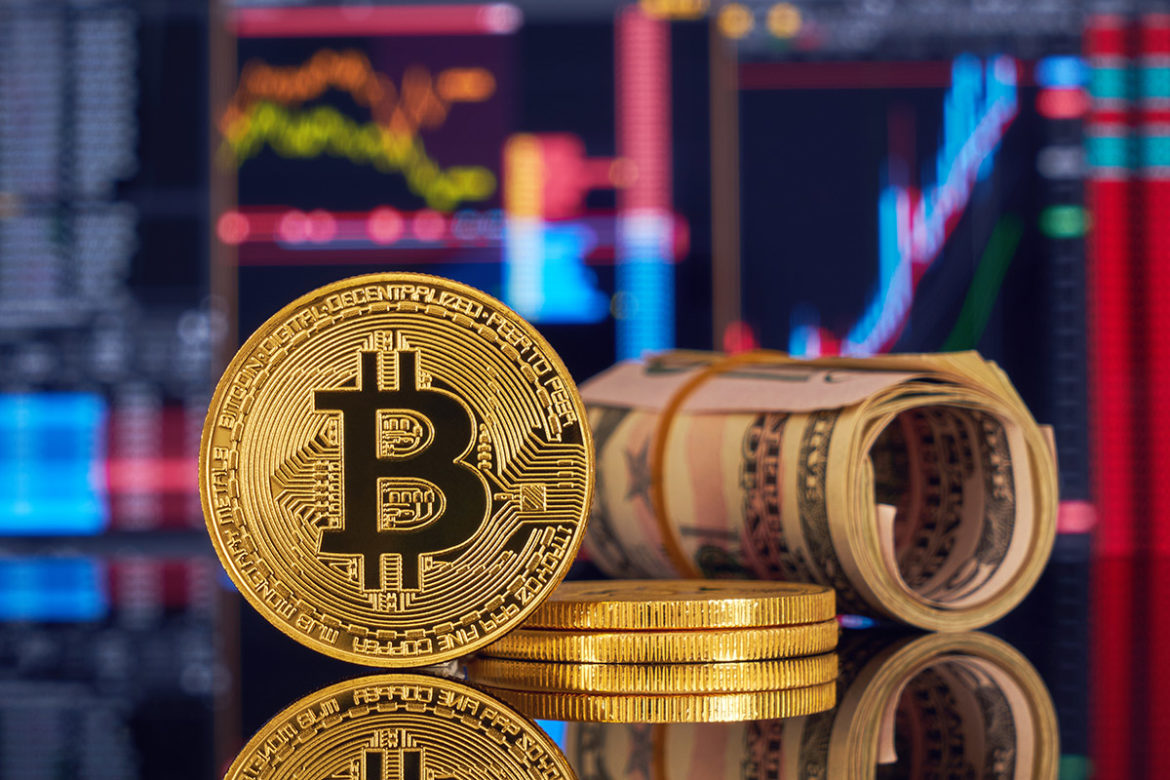The 90-day correlation between the top cryptocurrency and the S&P 500 has risen to its highest level since October 2020.
The perennial debate of whether bitcoin (BTC) is a gold-like haven asset or a risky investment may heat up as the cryptocurrency’s sensitivity to stock markets has increased amid concerns that the Federal Reserve’s aggressive tightening plans may tip the U.S. economy into recession.
The 90-day correlation between bitcoin and Wall Street’s benchmark equity index, the S&P 500, rose to 0.49% on Friday, the highest since October 2020, according to data tracked by Arcane Research.
“Bitcoin’s correlation to the S&P 500 has only been higher for five days in BTC’s history, showing that the current correlation regime is unprecedented in BTC’s history,” according to Arcane Research’s weekly newsletter published on Tuesday.
The correlation has strengthened alongside a relentless tightening of the U.S. Treasury yield curve, a sign the Fed may have a hard time avoiding much-feared stagflation with rapid-fire interest rate rises without destabilizing the economy. The yield curve, represented by the spread between the 10- and two-year yields, is now just 20 basis points (bp) short of inversion, a recession indicator.
So, the long-held crypto market belief of bitcoin being a digital haven is yet to come to fruition.
“I wish I could say that crypto is really responding to fundamentals [high inflation], but I think the chief fundamental here is the crypto is responding to the rise in equity prices,” Marc Chandler, managing director and chief market strategist at Bannockburn Global Forex, told CoinDesk TV when asked about bitcoin’s recent rise.
The cryptocurrency has risen 8% since the Fed raised borrowing costs by 25bp last Wednesday and raised inflation forecasts. The move has some wondering whether investors are parking money in the cryptocurrency to hedge against inflation.
However, the ascent seems to have been powered by the uptick in the stock markets. The S&P 500 has risen 6% since the Fed rate hike and the tech-heavy Nasdaq index has rallied by 8.7%, according to data provided by charting platform TradingView.
“What I am interested in is the change in bitcoin and change in Nasdaq and what you find is the correlation is over 60%,” Chandler said. “The stock market [has been] going bid.”
According to Noelle Acheson, head of market insights at CoinDesk’s sister company Genesis Global Trading, macroeconomic and geopolitical uncertainties seem to be keeping bitcoin from drawing store of value bids.
“One of the main reasons is uncertainty. Bitcoin is a volatile asset, and in times of uncertainty, harnessing that volatility – which is usually a feature, not a bug – is difficult enough to dissuade even the most experienced volatility traders. This is especially acute in the current market, given that the uncertainty is driven largely by the war in Europe, and it is hard to predict outcomes when we do not know if the news emerging from the conflict zone is trustworthy,” Acheson said in a LinkedIn post.
“The outlook for rates is also a source of significant market uncertainty, as last week’s hike of 25bp will not make a dent in the inflation already hurting consumers’ pockets, let alone that which is yet to come,” Acheson added.
Bitcoin was last seen trading near $42,180, representing a 0.8% drop on the day. Since late January, the cryptocurrency has been restricted between $36,000 to $45,000.
Per Acheson, bitcoin needs needs “either renewed speculation or new macro investment to be able to break out of the current range.”
